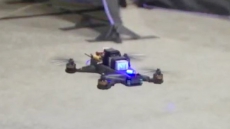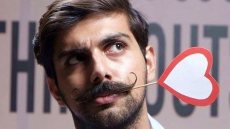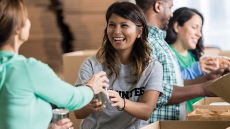Tips to improve self-esteem in 2018
In the world of social media, today’s youth are often living their lives in full view of an online audience. For those from a different generation, the idea of ‘checking in’ online or sharing a selfie to let people know where you are and what you’re up to might seem bizarre. But for young people today, getting ‘likes’ on photos, posts or comments in the virtual world can bring a powerful sense of accomplishment and community acceptance. But this constant search for validation can trigger negative effects on self-esteem.
Self-esteem, or a person’s positive or negative view of themselves, is a healthy system of checks and balances in our mind. Usually it works by comparing one’s self image to one’s perceived images of others. It is how we value ourselves and how we perceive our value to the world and to others. Although levels of self-esteem can vary slightly from day to day, we have a general feeling about our value and self-worth.
While our self-esteem system mostly moves us to make healthy, constructive and adaptive life decisions, it can malfunction just as any system does. When we compare ourselves to those we deem ‘better’ it may inspire us to become more like the person we look up to. Low self-esteem will impact different people in different ways, ranging from struggling to make friends and entering into personal relationships as a result of shyness to avoiding challenges and underachieving due to an innate belief of incapability. But it can also result in bigger issues like anxiety, depression, dependency, and abuse, to name a few.

Low esteem is a growing problem in our modern world, especially among youth, and social media has played a large role in this. Networking sites, like Facebook, Instagram and Snapchat, provide the perfect platform for meticulous self-presentation as users may filter profile content to present themselves in ideal ways. Our access to what is perceived as ‘perfection’ is always right there in front of us, and the opportunities to compare our looks and lives with those of others, are too many to count. People are comparing their realistic offline selves to the idealized online selves of others, which is misleading and detrimental to their self-esteem.
As a physician who works primarily in the operating room and in medical esthetics, I come across patients who are often looking to enhance their physical attributes. There are patients who have positive self-esteem and want to be a better version of themselves. These patients tend to have good outcomes as they are taking a realistic and proactive approach in making themselves happier by improving something that has truly bothered them.
Conversely, I also see patients who have poor body-image, unrealistic expectations or significantly low self-esteem. These patients hope it will solve their problems or transform them into a new person and go down a downward spiral of overindulging in cosmetic surgery. Although this is more commonly seen in an older age group, there is a concerning trend emerging in today’s youth who are often willing to undergo invasive procedures at a very young, underdeveloped age to satisfy their desire to fit in and boost their self-esteem.

Self-esteem improves by changing both your thoughts and behaviours; and you must continue practicing them to maintain a healthy love for yourself.
Some actions that can improve your self-esteem and self-worth include:
Be your own best friend
Be kind to yourself and learn how to quiet your inner critic. Meditation is the key!
Let go of perfectionism
This can be a tough one, but it’s an important lesson to learn. Set realistic expectations for yourself.
Stop comparing yourself to others
Identify what you like about yourself and remind yourself regularly.
Focus on the things you can change
These can be big or small. If you want to meet new people or get more involved in campus life, set mini goals that will help get you there.
Peer support
Look for supportive people and spend time with them regularly.
Think positive
You’re setting yourself up for failure if you think negative. Positive thoughts generate positive energy and positive energy breeds happiness, well-being, and spiritual and personal growth. One easy and time tested way to be positive is to make a daily list of three things you are grateful for.
Take a break from social media
Social media is just one big comparison game. Think about it, you’re trying to show off your life and everyone else is trying to show off theirs. Eliminate the comparison game and eliminate your social media.
Volunteer work
Community service is an excellent activity for everyone, especially children. Service work helps us learn to look beyond our own needs and to place them in proper perspective. As children see their contributions, creative ideas, and hard work having a powerful impact on other people’s lives, they begin to feel useful and valuable. Volunteering also provides opportunities to gain important skills which may later on be an added asset in their home, school, and work life.
We are at a pivotal moment in time as a community and need to recognize the impact that social media has on our psyche and especially on children. When we’re aware, we can recognize how we are responding and reacting to our own fears. We can then choose to respond in a healthier way. We need to put in more effort to create a safe environment at home, school and within our social circles that allow our ‘unfiltered, unedited, imperfect’ versions of ourselves to be accepted.
When we approach our lives non-judgmentally, we simply accept ourselves, our experiences, our failures and successes, and other people just as they are, without pride or shame. Once you accept the unique perfection of who you are and what you offer the world, you will find that you are more deserving than anyone of your own love and affection. Ultimately, it’s the inner belief we have in ourselves that guides our journey.

ABOUT THE AUTHOR
Born and raised in New York, Dr. Gursimar K. Sidhu-Gill is a board-certified Anesthesiologist who has recently moved to the Greater Vancouver area. She currently works at Surrey Memorial Hospital with the Department of Anesthesia and at NewGen Medical Centre. Dr. Sidhu-Gill has an interest in the latest advances in pain management, obstetrical anesthesia, and esthetic techniques.





